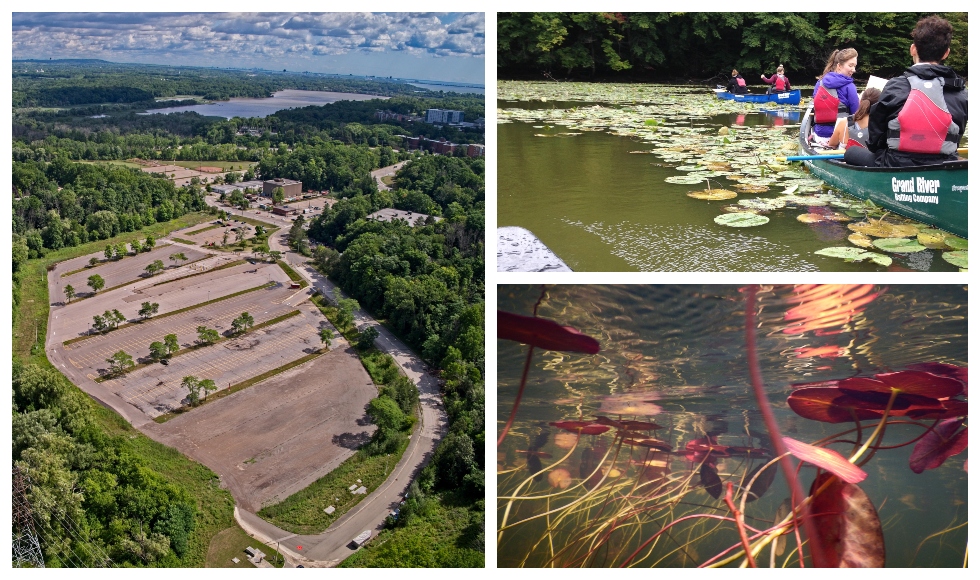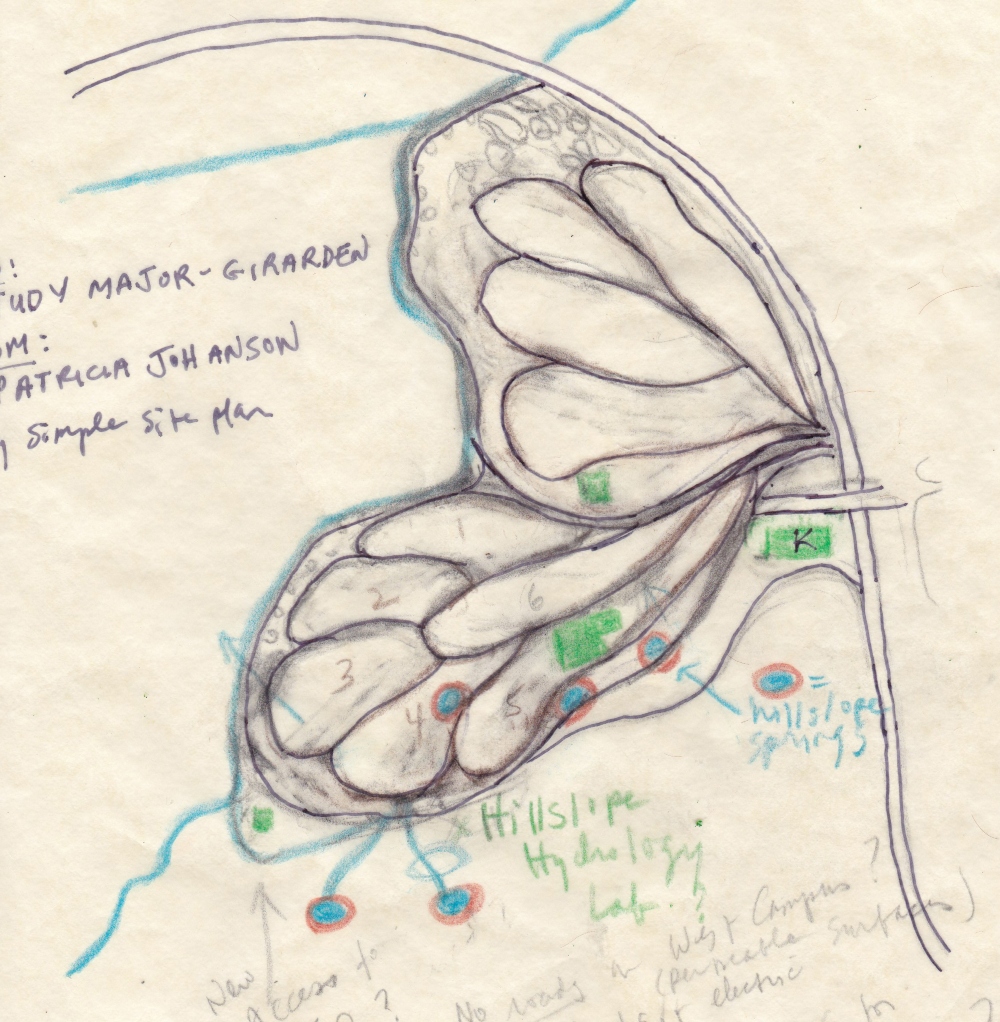McMaster’s Watershed Trust: Reimagining an ecological treasure

The Watershed Trust – Phase 1: West Campus Redesign Initiative is a university-wide collaboration aimed at reclaiming and reimagining an important, ecologically sensitive wetland located on and near Parking lot M.
During these cold winter weeks when the sky is grey and the ground is frozen, it’s hard to imagine the world blossoming into spring.
But in a month that marks the critical importance of protecting wetlands, McMaster’s Watershed Trust initiative is a reminder that in just a few short weeks, the incredible life and biodiversity on campus will begin to re-emerge.
This month marks World Wetlands Day, an event held annually on Feb. 2.
The Watershed Trust – Phase 1: West Campus Redesign Initiative is a university-wide collaboration aimed at reclaiming and reimagining an important, ecologically sensitive wetland located on and near Parking lot M.
A joint initiative led by the Faculties of Humanities and Science with support from the Office of the President, the Office of the Provost and with philanthropic support, the Watershed Trust will offer unique opportunities for interdisciplinary learning and research and will serve as a model for sustainability on campus.
“This initiative is bringing us one step closer to creating a living lab for our students, researchers and community partners while helping to transform and safeguard a biologically rich wetland and wildlife habitat, preserving it for current and future generations,” says McMaster President David Farrar.
Last summer, a working group was formed to consider how this area could be reclaimed and re-purposed. Working group members include Susan Tighe, provost and vice-president, academic, Pamela Swett, dean of Humanities, Maureen MacDonald, dean of Science, Debbie Martin, chief facilities officer, Judy Major-Girardin, professor, School of the Arts and James Michael Waddington, Canada Research Chair in Ecohydrology.
“This initiative represents a beautiful vison for the future,” says Swett. “It’s a true blend of arts and science and will generate exciting opportunities for McMaster to approach teaching, learning, community partnership and campus sustainability in completely new ways.”
“The teaching, learning and research possibilities presented by this initiative are endless,” says MacDonald. “Not only will it inspire innovative experiential learning and integrated campus-community research projects, it’s also an incredible opportunity to re-think and re-green this ecologically significant area of campus.”
Next steps include an engineering feasibility study and further discussions on how the revitalization would integrate with the university’s campus plan.
Creating a new vision for McMaster’s West Campus
Over the years, there have been a number of projects to remediate and redesign McMaster’s west campus.
Most recently, the university invited renowned artist and landscape architect Patricia Johanson to create a physical vision for the re-development of the area.

Created in collaboration with faculty, staff, students and community members, Johanson’s proposed design uses the imagery of the monarch butterfly – a symbol of change, rebirth, hope and transformation.
Potential ideas and opportunities arising from the proposed design include earth sheltered facilities, a field station, land-based learning and research, a “learning lodge,” a forest daycare, a recontoured landscape, wetland and corridor restoration and the re-establishment of native species.
CAPTION: This sketch by renowned artist and landscape architect Patricia Johanson illustrates how the land areas of west campus could be reconsidered as an alternative to a typical urban grid configuration.
The Watershed Trust is a key university priority, exemplifying McMaster’s commitment to addressing climate change and to advancing the United Nations’ Sustainable Development Goals (SDGs).
Learn more about the ways McMaster is contributing to the UN’s SDGs


